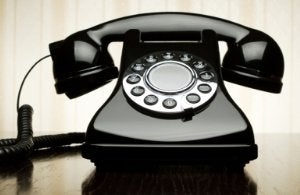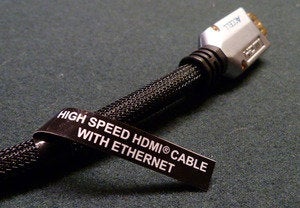None of us like to spend money (except on shiny new toys). But even we curmudgeons can understand that companies need to charge for things that cost them money; and profit-making is at the heart of our economy.
Still, several charges appear on our bills that can drive even the most complacent techie into a screaming fit. How did this advertised price turn into that much on the final bill? Why are they charging for it in the first place? Herewith, five fees that make no sense at all—and yet we still fork over money for them.
1. Long-distance phone charges
Until a few decades ago, in the era when landline phones were the only phones, long-distance calls were expensive. Really expensive, like 25 cents a minute back in the 1960s. I remember my father shouting into the phone when he called a hotel in Maine, "I AM CALLING LONG DISTANCE FROM NEW YORK!" I suppose he thought it meant he'd get more attention, instead of being put on hold, except we didn't have "on hold" back then.

Nowadays, most cell phone plans make no distinction between local calls and long distance (with some international exceptions); we're only tracked in minutes used. Yet with landlines, we still have to pay attention to where we're dialing. There are choices, which somehow only makes it worse: usually a flat fee for a finite number of minutes, or a fee charged per-minute for long-distance. Landline long distance is cheaper than it once was (typically, state-to-state calls start at 7 to 9 cents per minute) but the options are more confusing. It's a lot easier to pick up your smartphone, start up Skype, or adopt one of the many VOIP options. So why do the phone companies continue to charge for long distance calls?
Perhaps we should be grateful. It wasn't until 2006 that the U.S. federal government cut off a phone tax that had been in place for 108 years. Until then, we had a 3 percent federal excise tax on long-distance calls. The tax was imposed in 1898 to help pay for the Spanish-American War, which should give you some idea of how long we'll be paying the 9/11 fee on airline tickets.
2. Hotel Internet fees
Once, the hospitality industry might have argued that Internet access was an "extra" that wasn't required for business travelers. They charged the minority who used the service, just as they charged you to watch a premium movie channel.
That isn't the case anymore; we've come to expect connectivity as a God-given right. In the last six years, the number of guests using Wi-Fi has jumped 35 percent, and hotel guests' demand for a great Wi-Fi experience is at the top of the list of preferred amenities.

Yet, while Internet access is free in coffee shops, some public transit, and even campsites, as of 2009 15 percent of hotels charged guests for the privilege of checking their e-mail and catching up on watching cat videos. Oddly, budget and midscale hotel chains are more likely to offer free Wi-Fi, while luxurious hotels—which are already costing the traveler more—regularly ding us. (With large dings. Did I mention that I paid $28 for 24 hours of Internet access in a hotel room in Amsterdam? Did I?)
It could have been worse. I could have stayed at the Hilton Mayfair in London, which charges $32 a day.
To add insult to injury, the connectivity performance often is dreadful. And we pay for it, however grumpily, because we already got undressed and crawled into bed with our laptops and the chocolate the hotel left on the pillow. Sure, we could head downstairs to the coffee shop, or set up our smartphones as a Wi-Fi hub, but why should that be necessary?
3. International data fees and roaming charges
I was going to Europe for a week to attend a tech conference, not to chat on the phone. How much money could I possibly spend?

Ha ha ha. While I thought I was keeping myself in check with phone calls, I didn't realize that every text message I sent cost 25 cents. That was one expensive smiley-face.
There are workarounds, of course: Go to a local smartphone provider to buy a SIM card or (if you travel to that region often), a dedicated phone to use on trips. See if your provider has an overseas plan (at extra cost, naturally). Depend on VOIP, free Wi-Fi hotspots, and the kindness of strangers. But… why should we have to?
Here's a great business idea: Cheap, rental smartphones at international airports. I'd put down a hundred bucks deposit and $10 a day for a local phone that doesn't come with all the nickel-and-dime charges.
4. DVR fees and cable modem fees
Sometimes the ridiculous fees are unavoidable, but in other circumstances we have only ourselves—and our lazy complacency—to blame. Case in point: the leasing fees on cable modems and DVRs. Every month, we give the cable company a few bucks to provide us with equipment, pretending that if it breaks down they'll rush a technician to our door to fix it.

We customers can buy our own modems for $50 to $100. But we don't, because we'd have to know enough about the technology to make a sensible purchase; we'd have to set up the equipment ourselves; and—the most painful prospect—we'd have to call the cable company and talk to tech support personnel.
So we keep paying monthly fees that, well, make no sense at all. Except to the cable company's bottom line, that is. For example, this summer, Time Warner raised the cable modem monthly "leasing fee" to New York customers by 50 percent, to $5.99. About 9 million of Time Warner's 11 million broadband customers will pay the fee, according to a Wall Street Journal blog post, bringing the full annual value of the leasing fees to about $650 million. "That's about one quarter of Time Warner Cable's total annual capital expenditures for residential customers," the beleaguered user reports.
5. Bank fees for automated processes
Some banks charge customers a $2 fee for checking their balance on an ATM outside their own system. Yet, if you go into the branch and talk to the bank teller for 20 minutes, you aren't charged a dime.

Similarly, until only a few years ago, Bank of America wouldn't let me schedule a payment for Saturday even if the credit card due date was Saturday. It posted the payment on Monday along with a late charge. Uh, guys? Computers don't have business hours!
The worst of these may be the charges for using payroll cards. You and I—with our decent IT salaries—are unlikely to use these variations on debit cards. However, reports a Time article, "abusive fees are being forced on those least able to protect themselves: low-skilled workers in retail and restaurant jobs." People with payroll debit cards often are charged a bank fee for nearly every transaction, such as a $1.50 charge for ATM withdrawals, $5 for over-the-counter cash withdrawals, and $1 per balance inquiry.
I don't mind being charged for services that cost a company money, which includes paying its employees a living wage for doing something useful (such as putting up with complaints from customers who blather at them for 20 minutes). But charges like these are beyond ridiculous.
Which tech fees drive you crazy? Tell me about them in the comments.
Anda sedang membaca artikel tentang
5 lingering (and silly) tech fees we shouldn't still be paying
Dengan url
http://manfaattea.blogspot.com/2013/10/5-lingering-and-silly-tech-fees-we.html
Anda boleh menyebar luaskannya atau mengcopy paste-nya
5 lingering (and silly) tech fees we shouldn't still be paying
namun jangan lupa untuk meletakkan link
5 lingering (and silly) tech fees we shouldn't still be paying
sebagai sumbernya
0 komentar:
Posting Komentar